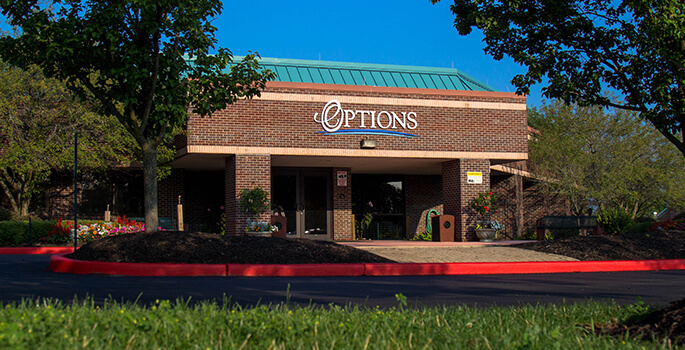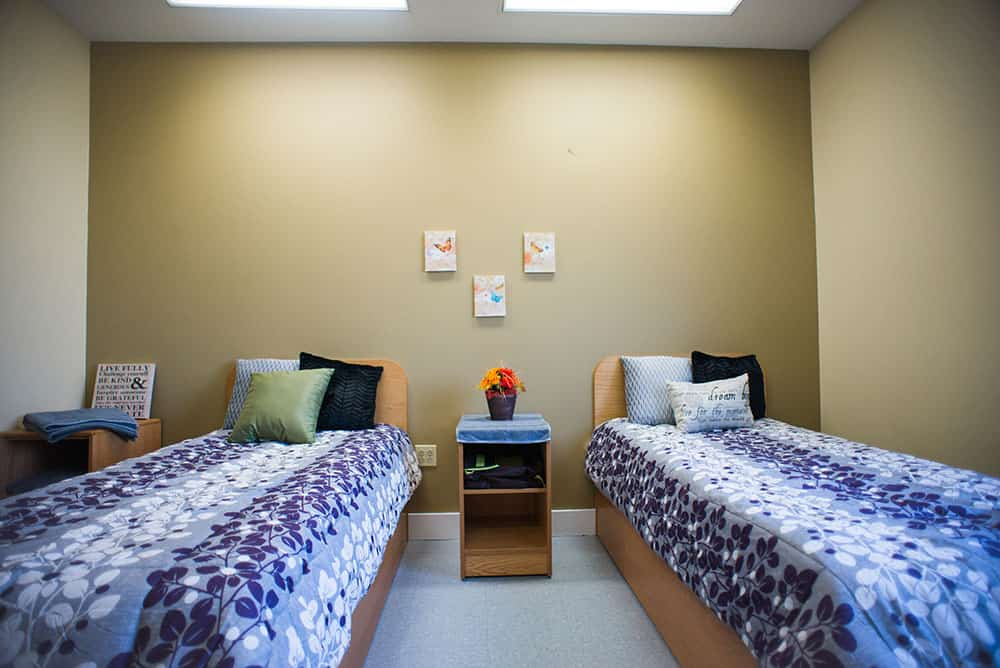Options Behavioral Health is renowned as one of Indianapolis’ leading providers of alcohol addiction treatment. Our expert staff creates personalized treatment plans to cater to each individual’s specific needs.
Alcohol Addiction Treatment
Learn more about alcohol addiction treatment at Options Behavioral Health System in Indianapolis, IN
Alcohol abuse occurs when a person begins drinking alcohol to the extent that the pattern of use begins to significantly impair his or her ability to function appropriately on a daily basis. These people may soon find that they are no longer able to get through their day without having a drink. Things that used to be important to them may suddenly no longer seem to matter. Their relationships may be breaking, they may be at risk for losing their jobs, or their health may be on a steady decline, yet they are unable to break away from the grip that alcohol has taken on their lives.
At Options Behavioral Health, we realize how devastating an addiction to alcohol can be to the person struggling with the addiction, as well as to his or her loved ones. We recognize that alcohol abuse presents people with a number of challenges that they have to face each day. In order to best help patients work through those challenges, our hospital provides a caring and compassionate treatment program that is designed to meet the unique needs of men and women who find themselves in need of help to overcome their addiction to alcohol.
Options Behavioral Health is an 84-bed, free-standing psychiatric hospital devoted to providing a full continuum of care for adults and older adults who are struggling with alcohol dependence and co-existing mental health disorders. If you want to win the battle against your addiction to alcohol, we can help you get there.
Types of Treatment
Types of alcohol addiction treatment offered at Options Behavioral Health System in Indianapolis, IN
When you first come to us for treatment for your addiction to alcohol, we will work hard to get to know you through the use of a number of assessments that are designed to help us best formulate a plan of care that meets all of your needs. The medical examination will determine the drugs that are currently in your system and any medical complications that may have come about as a result of your drug use. Our psychiatric assessments will determine the severity of the symptoms and the presence of any co-occurring, dual-diagnosis mental health disorders, such as depression, anxiety, or bipolar disorder. Our treatment team will take the results of these assessments and work with you and your loved ones to create a treatment plan that will best meet all of your needs.
Medication management: Medications can be a beneficial part of treating people who are struggling with an addiction to alcohol as well as a co-existing mental disorder. If it is determined that medication is necessary to provide you with the most successful treatment outcome, our primary care physicians will closely monitor the therapeutic effects of the medication while also making any necessary changes.
Group therapy: Group therapy is held on a daily basis in our inpatient program. These sessions are designed to bring patients together so that they can share their personal experiences, discuss the things that they are learning in treatment, and explore different ways of coping with the struggles that they are facing. Group therapy is also an ideal time for patients to realize that they are not alone.
Family therapy: Family therapy is a time designed to help patients and their loved ones learn to communicate in a positive manner while also working towards repairing any parts of relationships that may have been broken as a result of the patient’s alcohol abuse. This also serves as a time for family members to learn what addiction is and to practice ways in which they can best support their loved one.
Recognizing that ongoing care is essential in facilitating lasting recovery from an addiction to alcohol, the staff at Options Behavioral Health works diligently with patients to develop thorough discharge plans and arrange for aftercare supports. The therapists in each program facilitate discharge and aftercare planning by assisting patients in scheduling follow-up outpatient therapy sessions within seven days of their discharge. When necessary, psychiatric appointments are also scheduled at the time of discharge. Therapists work with patients to assess what other types of resources and referrals may be beneficial in their specific situations and will help make those arrangements as well.










